First Take Fridays are a celebration of the ‘first time’ we played a game. Come see what our writers think about Dragon Boats of the Four Seas, War Chest, Forbidden Sky, Degensis, and Hero’s Crossing.
Dragon Boats of the Four Seas – Ashley Gariepy
I recently played a prototype of Dragon Boats of the Four Seas which just launched on Kickstarter this week. It is a game designed by Michael Schacht and put out by new publisher Maple Games. The influence of Schacht’s own Zooloretto and Felinia, as well as Imhotep and The Speicherstadt, are all felt in this game.
Dragon Boats of the Four Seas is a game of set collection, auction/bidding, resource and money management, and area control. It sounds quite complicated, but learning the game is actually easy (mastering it proved to be more difficult). Each round begins with players bidding for resources or special power cards, similarly to Schacht’s Felinia (and Feld’s The Speicherstadt). The cost of a resource increases with each player token that is bid. Players can mess with each other by driving up a resource cost, even if they don’t necessarily want it.
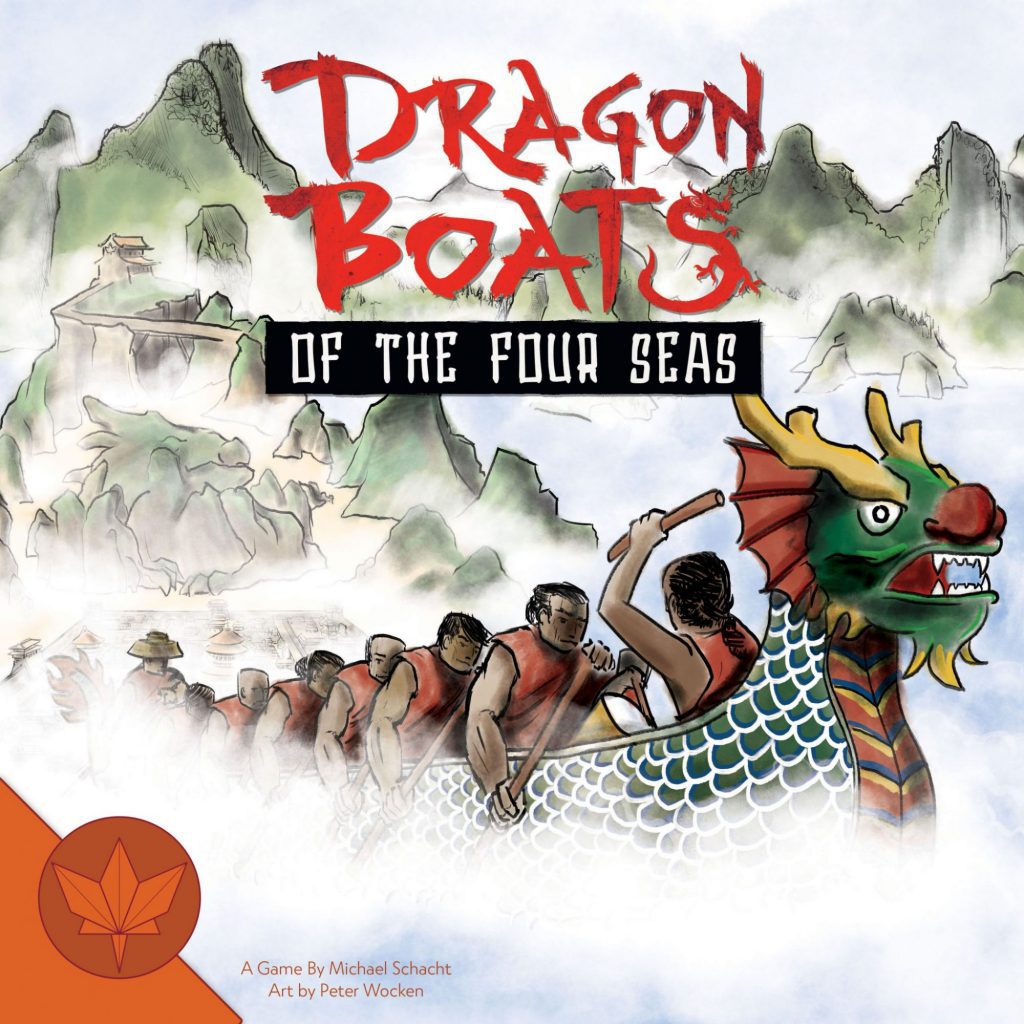
Where do the boats come in? After the bidding phase, players can choose to load a boat with one of their farmers by paying the required resources. The farmer at the bow (front) will get to move and collect resources on an island first, while the furthest back farmer chooses to which of the 2 islands the boat will sail. This is yet another way in which other players can really interfere with your plans.
Dragon Boats of the Four Seas can get pretty cutthroat, but in spite of that, the game is a lot of fun (and really not as mean as I’m making it sound). I have yet to be disappointed by a Michael Schacht design and this game is no exception. The combination of improved and unique mechanisms in Dragon Boats of the Four Seas work so well together. What an excellent choice for Maple Games’ first published design.
★★★★★☆ Ease of Entry
★☆☆☆☆☆ Excitement Pre-Game
★★★★★★ Excitement for Rematch
Read more from Ashley Gariepy.
War Chest – Tyler Williams
An exciting abstract that takes the best of chess with a bag building twist. Kings and queens have been replaced with specific map points to control and the gameplay is fast and rewarding. Each player takes on the role of a army commander with their forces being comprised of 4 of the games 16 possible units. This allows for a great deal of variety in what your army will look, and play like. Each unit has a unique “tactic” that provides both great flavor and tactical depth to Warchest as each game you will have utilize different strategies to make the most of your units while combating your foes.
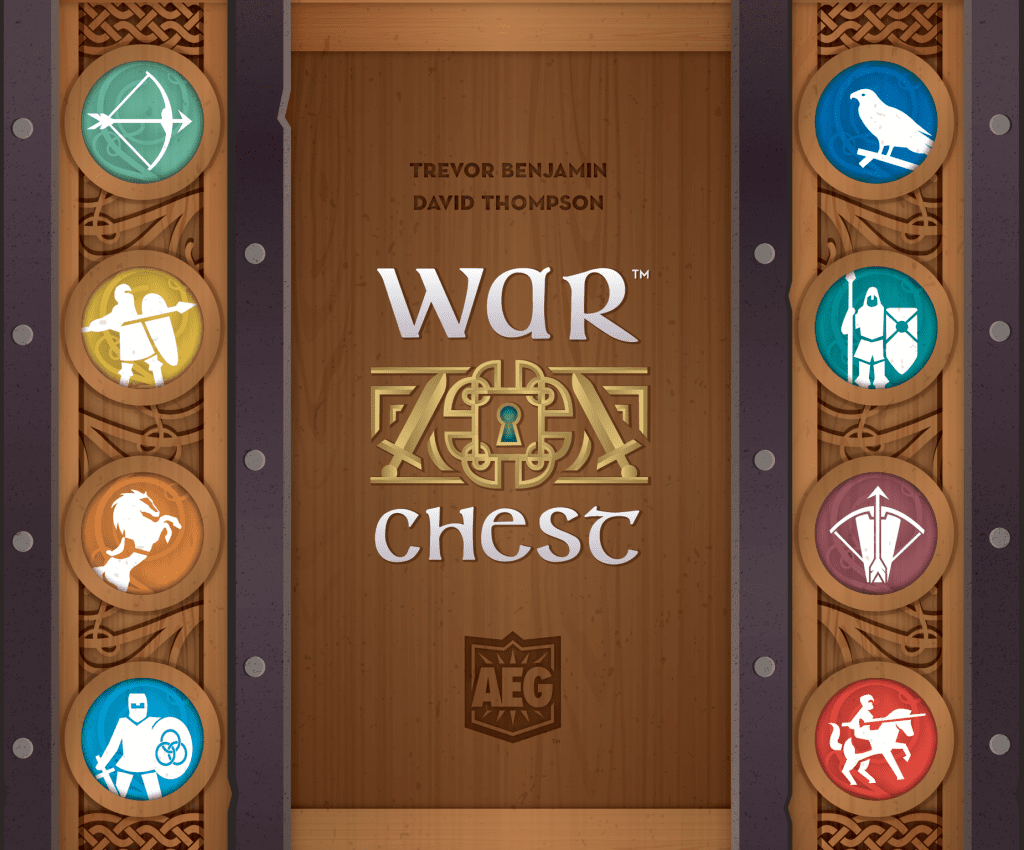
The rounds of play and bag building are easy to teach or learn but offer a great deal of strategy and flexibility for players. The games are often over in 20 minutes and with a 1v1 or 2v2 option this is a game that is sure to be a great addition to your collection. With all the possible unit combinations, Warchest has a great deal of replayability and will leave you wanting more!
★★★★★★ Ease of Entry
★★★★★☆ Excitement Pre-Game
★★★★★☆ Excitement for Rematch
Read more from Tyler Williams
Forbidden Sky – Jonathan Elder
First an island then a desert now Gamewright takes us to the skies in their new cooperative game Forbidden Sky. I was excited to play this game because I enjoy Forbidden Island and Desert. The line of forbidden games grows in difficulty, each adding something unique and more difficult to manage in the gameplay. Forbidden Sky could be considered “Hard” mode but I wouldn’t be too worried if players are familiar with the previous games.
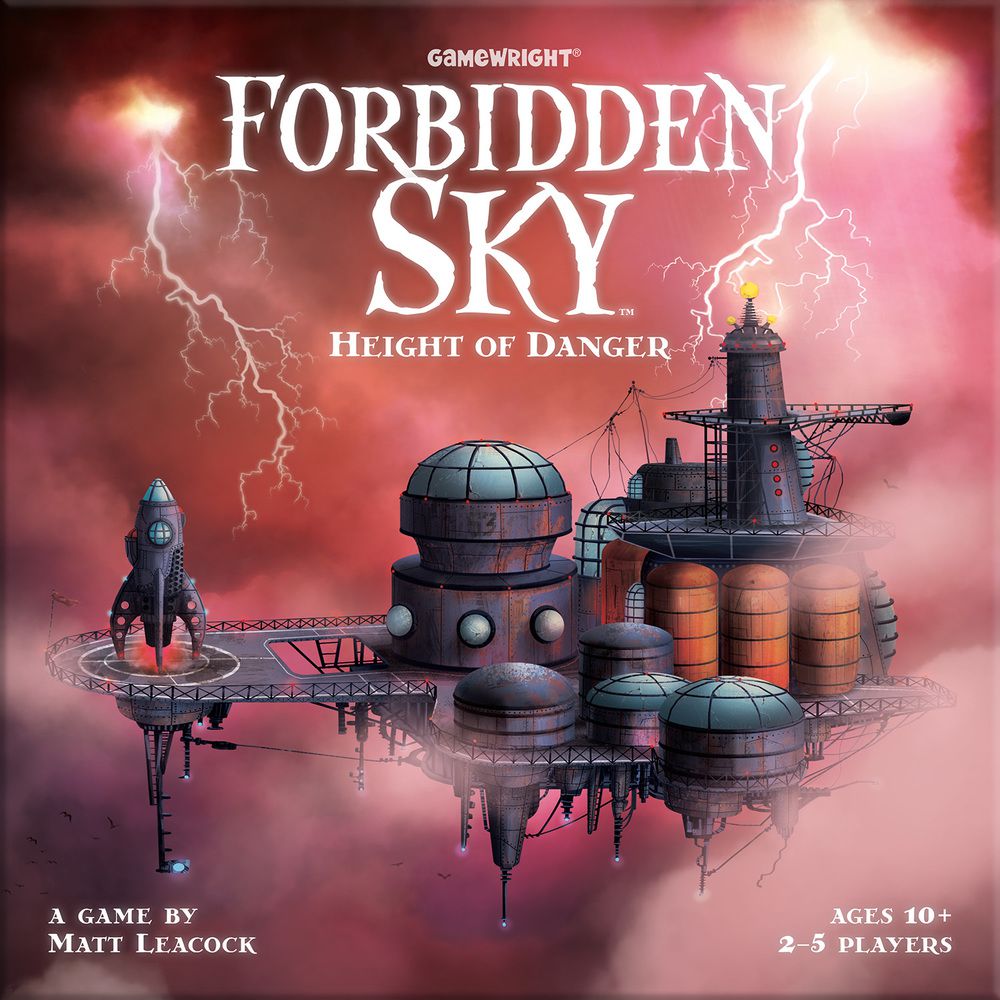
In Forbidden Sky a storm is brewing and players are trying to escape. Everyone on the team has a special role with abilities to help the group survive and succeed. Players take turns building the board, trying find and power their rocket. This is done by Scouting (drawing) for tiles and Exploring (placing) them to build the platform. Sky is different than the previous two games in which the board was already complete at the beginning of play. On top of building the platform players have to connect circuit components by Wiring (placing metal connections) them together to literally create a circuit to power the rocket to escape. It lights up with sound!
Forbidden Sky plays very similarly to the other Forbidden games. Teamwork and communication is key but planning out future turns far in advance will help in surviving the storm. Where in the previous games you were just searching and managing rising water and piling sand Forbidden Sky requires you to create a plan for tile placement and circuit creation.
While this game requires foresight and planning it really doesn’t do anything astoundingly different than the other games; roles feel similar, the goal is the same, and action economy works as before. I’d play it again but it’s not any better or worse than the others in the line. If you’re familiar with Island or Desert this is easy to pick up, just check the new rules and play. If you’ve not played the others before than this one is a bit more advanced because there’s more item placement and movement rules. I mean, it’s cool that players are building a circuit and the ship ‘blasts off’ but it’s just a different take on the same thing.
★★★☆☆☆ Ease of Entry
★★★★★☆ Excitement Pre-Game
★★☆☆☆☆ Excitement for Rematch
Read more from Jonathan Elder
Degenesis – Than Gibson
Degenesis is a tabletop roleplaying game published by German concept art studio and publisher SIXMOREVODKA. Described as “Primal Punk,” Degenesis takes place in a post-apocalyptic Mediterranean region where modern nations have long since perished in a meteoric armageddon and the alien spores brought with it. Humanity is now fighting for its last breaths of survival while divided into new cultures and cults.

Degenesis began as a fan art project and turned into a fantastic world-building exercise. The most current version, Rebirth, is a beautiful (and heavy!) two book set that details the world of Degenesis and lays out the system. The artwork is gorgeous, the content is amazingly detailed. The actual game system is almost an afterthought once you get to it and that’s not a bad thing. The mechanics center around a comparative dice pool to role against a difficulty class to accomplish any task. This enables the story to be front and center without rules getting in the way.
If you are a fan of the post-apocalyptic genre, especially savage, primal post-apocalypse then definitely check this game out. We’ll be doing a more in-depth review of the latest expansion for Degenesis, Black Atlantic, but for now go check this game out!
http://sixmorevodka.com/degenesis/
★★★★☆☆ Ease of Entry
★★★★★☆ Excitement Pre-Game
★★★★★☆ Excitement for Rematch
Read more from Than Gibson.
Hero’s Crossing – David McMillan
In Hero’s Crossing players take on the roles of entrepreneurs inside of an old 8-bit JRPG. In most games of this ilk, the players are the heroes, but in Hero’s Crossing the players are the people behind the scenes that outfit the heroes for their adventures.
Hero’s Crossing uses a “dual action selection system” to drive the game along. Each round an action card is flipped which shows different pairings of the game’s various actions. Players roll dice on their turns and then assign a die to one of these action pairings. The die’s color and value determine the effectiveness of the action. Players can buy, and upgrade, buildings to add to their village, produce resources in production areas, and then move those resources to their shops; all with the goal of attracting heroes and outfitting them with the items that they desire. Ultimately, though, it’s a game about earning the most victory points by using these different actions the most effectively.
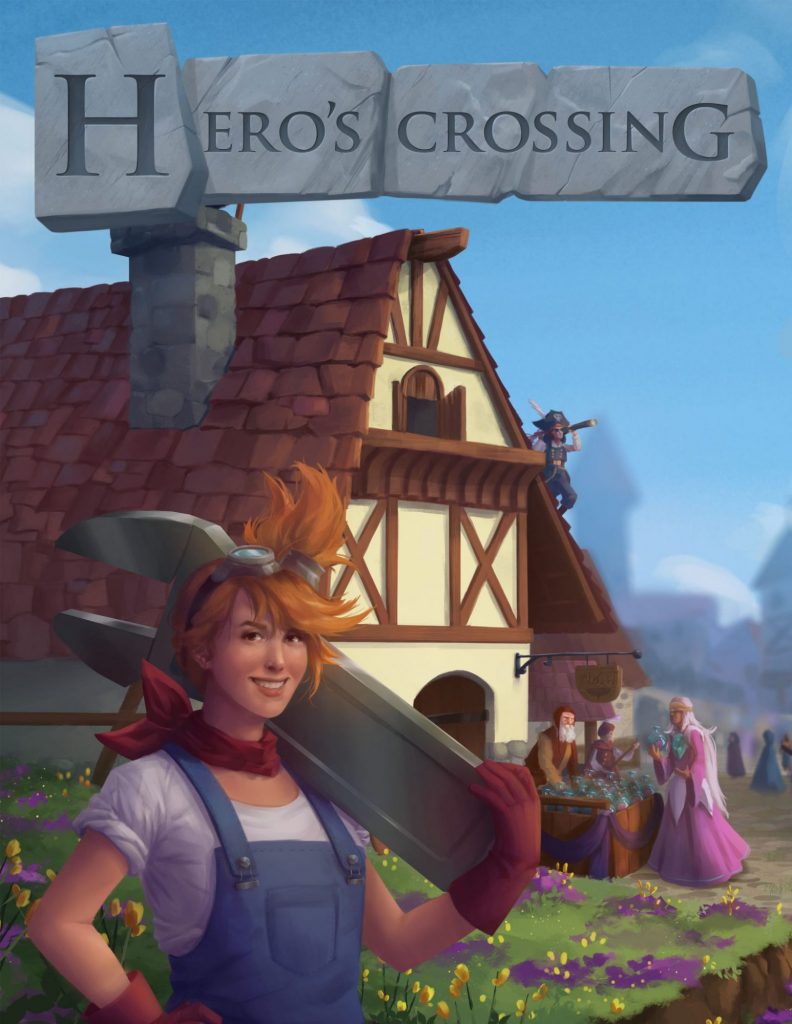
My wife and I were excited when we sat down to play, but that excitement quickly waned once the dice stealing aspect of the game came into play. Stealing your opponent’s dice is a very important aspect of the game as it allows you to perform actions more effectively in a single round (i.e. producing a single type of resource and then being able to move it later on). In our two-player games, this felt overly aggressive and definitely left a dark cloud over the occasion. I haven’t played the game at a higher player count yet, but I definitely want to to see if the dice stealing feels just as aggressive at those counts.
Aggression aside, I personally enjoyed Hero’s Crossing, but it did feel like it dragged on for a little too long. This might have been a side effect of that dark cloud that I mentioned earlier. I couldn’t say for sure without more plays with different people
★★★☆☆☆ Ease of Entry
★★★★★★ Excitement Pre-Game
★★★★★☆ Excitement for Rematch


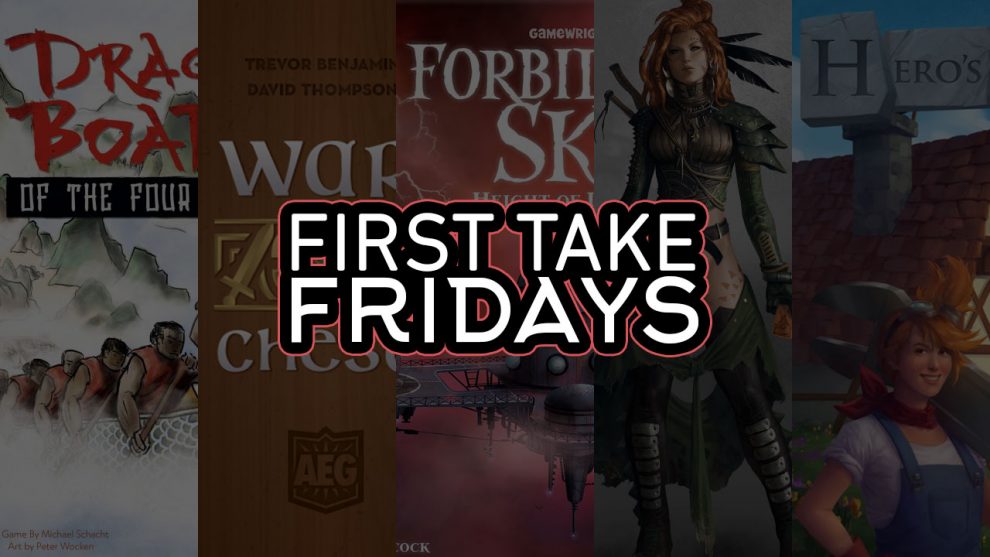


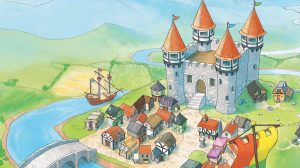





Add Comment